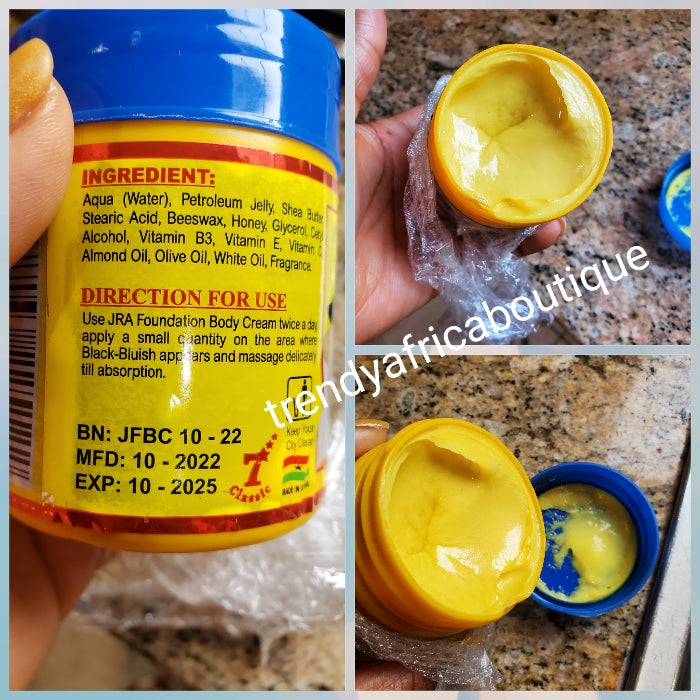Are you curious about whether you can use face cream on your body? You’re not alone.
Many people wonder if the luxurious creams designed for their faces can also benefit the skin on their arms, legs, and beyond. After all, skin care can be pricey, and it’s tempting to make the most out of your products.
But before you start slathering that rich moisturizer all over, it’s important to understand the differences between facial and body creams. You’ll discover the key factors to consider, the potential benefits, and what you should know to keep your skin healthy and glowing. Keep reading to find out if your favorite face cream deserves a spot on your body!
Face Cream Vs. Body Lotion
Choosing between face cream and body lotion can be tricky. Both serve different purposes. Understanding their key differences helps in making the right choice. Let’s explore.
Key Differences In Formulation
Face creams are often thicker and richer. They contain more active ingredients. These ingredients target specific skin issues like wrinkles or dryness.
Body lotions are lighter and more fluid. They focus on moisturizing larger skin areas. Their formulas are simpler and less concentrated.
Skin Needs For Face And Body
The skin on your face is more delicate. It needs gentle care and specific nutrients. Body skin is tougher and can handle heavier products.
Face creams often include antioxidants and vitamins. These protect and nourish the skin. Body lotions usually focus on hydration and softness.
Using face cream on the body may lead to clogged pores. Body lotion may not provide enough nourishment for the face.

Credit: gelestore.com
Ingredients To Watch Out For
Choosing the right products for your skin is important. Face creams often contain specific ingredients. Some of these may not be suitable for your body. Understanding these ingredients helps you make better choices.
Active Ingredients And Their Effects
Active ingredients can benefit your skin. But they may not suit all areas of your body. For example, retinol is great for the face. It helps with fine lines. On the body, it may cause irritation.
Another common ingredient is hyaluronic acid. This adds moisture. It works well on both face and body. It helps keep skin hydrated.
Some acids, like glycolic acid, exfoliate skin. They can be harsh on sensitive body areas. Use with care.
Common Allergens And Irritants
Many face creams contain fragrances. These can cause allergic reactions. Fragrances may irritate sensitive skin. It’s best to avoid them for body use.
Alcohol is another ingredient to watch. It can dry out the skin. Body skin usually needs more moisture.
Be cautious of parabens. They are preservatives found in many products. Some people may be sensitive to them.
Always check the ingredient list. Know what works for your skin. Avoid products that may cause problems.
When Face Cream Works For The Body
Using face cream on your body might seem unconventional, but there are specific situations where it can be beneficial. Many face creams are formulated with nourishing ingredients that can enhance skin hydration and texture. If you’ve ever found yourself with leftover face cream, you might wonder if it’s suitable for other areas of your skin.
Suitable Scenarios For Face Cream Use
Consider using face cream on your body when you have dry patches that need extra moisture. Areas like elbows, knees, or even your feet can greatly benefit from the rich hydration that face creams often provide. If you have a thick cream that feels too heavy for your face, try it on these spots where your skin craves more nourishment.
Another scenario is when you’re traveling. A small container of face cream can double as a body moisturizer. It’s convenient and can save you space in your luggage, allowing you to maintain your skin’s hydration without carrying multiple products.
Skin Types That Benefit
If your skin is sensitive or easily irritated, lightweight, fragrance-free face creams can be a great option for your body. These formulations often contain soothing ingredients that can calm irritation on body skin, especially after sun exposure.
For those with combination skin, face creams can also be used on the body. They often hydrate without feeling greasy, making them perfect for areas that need moisture but not excessive oiliness.
Have you ever tried using a hydrating face cream on your body? You might find that it works wonders for your skin, offering a level of moisture and softness that regular body lotions can’t match. Just remember to patch-test any new product on a small area first to ensure it suits your skin!
Credit: www.tiktok.com
Potential Risks And Drawbacks
Using face cream on your body may seem like a smart way to save time and money. However, it’s essential to understand the potential risks and drawbacks associated with this practice. Let’s dive into some key concerns that might make you rethink your skincare approach.
Overuse Of Active Ingredients
Many face creams contain active ingredients like retinol, alpha hydroxy acids, or salicylic acid. These powerful components are designed for the delicate skin on your face. Applying them to larger areas of your body can lead to irritation or adverse reactions.
For instance, I once tried a popular anti-aging cream on my elbows. Initially, I noticed smooth skin, but within a week, I experienced redness and peeling. It made me realize that what works on my face might not suit other body parts.
Always check the concentration of these ingredients. Overuse can disrupt your skin’s natural barrier, leading to more problems than solutions.
Cost Considerations
Face creams often come with a higher price tag than body lotions. Using them on your entire body can quickly add up. Are you willing to spend extra money on products that may not be suitable for your skin type?
Consider this: a good body lotion can provide hydration without the hefty price of a specialized face cream. Investing in the right products for each part of your body may save you money in the long run.
Evaluate your skincare budget and decide whether the benefits truly outweigh the costs. Your skin deserves the right care, and sometimes, that means choosing the right product for the job.
Expert Recommendations
Experts have clear opinions about using face cream on the body. Some believe it is fine, while others do not recommend it. Here are their insights.
When To Stick With Body Lotions
Body lotions are designed for thicker skin. They contain ingredients that hydrate and nourish. Face creams often have lighter textures. They may not provide enough moisture for your body.
Using body lotion is best for dry areas. Elbows, knees, and feet need extra care. Body lotions also help with skin conditions. Conditions like eczema or psoriasis benefit from richer formulas.
How To Choose Multi-purpose Products
Multi-purpose products can save time and money. Look for creams labeled for both face and body. Check the ingredient list for moisturizing agents.
Ingredients like hyaluronic acid and glycerin are great. They help retain moisture. Avoid products with heavy fragrances. Fragrances can irritate sensitive skin.
Test the product on a small area first. This ensures it works for your skin type. Always listen to your skin’s needs. Choose wisely for the best results.

Credit: plumgoodness.com
Diy Solutions For Skincare
Using face cream on your body can be tempting. Many face creams contain beneficial ingredients. However, they may not be designed for larger skin areas. Always check the label for best results. Consider your skin type and any specific needs before applying.
DIY Solutions for Skincare can be a fun and rewarding way to tailor your beauty routine. You have the power to create products that suit your unique skin needs and preferences. If you’re wondering whether you can use face cream on your body, you might just find some creative alternatives through DIY solutions.
Creating All-in-one Moisturizers
Crafting an all-in-one moisturizer can save you both money and space in your skincare cabinet. Start by mixing your favorite face cream with a lightweight body lotion. This blend can provide hydration for both your face and body without overwhelming your skin. Consider adding natural oils like coconut oil or almond oil to your mixture. They can enhance the moisturizing properties and leave your skin feeling soft and supple. You can also add a few drops of essential oils for a pleasant scent. Lavender or tea tree oil can offer calming effects while promoting skin health.
Tips For Safe Product Mixing
Mixing products isn’t always straightforward. Always perform a patch test before applying a new blend to your skin. This helps you avoid any unwanted reactions. Be cautious with the ratios. Too much of a heavier cream can clog pores, especially if you’re using it on your face. Aim for a balanced mix—start with a small amount of face cream and gradually add body lotion until you achieve the right consistency. Pay attention to expiration dates. Combining products can alter their shelf life, so use your DIY creations within a reasonable time frame to ensure they remain effective. Have you tried mixing your skincare products before? What unique combinations have you discovered? Share your experiences and let’s learn together!
Frequently Asked Questions
Is There A Difference Between Face Cream And Body Cream?
Face cream and body cream differ in formulation and purpose. Face creams are lighter, designed for delicate facial skin. Body creams are thicker, targeting larger areas for hydration and nourishment. Always choose products based on your skin type and specific needs for optimal results.
Can I Use Facial Moisturizer On My Pubic Area?
Using facial moisturizer on the pubic area is generally not recommended. Facial products can irritate sensitive skin. Choose moisturizers specifically designed for intimate areas to ensure safety and comfort. Always perform a patch test before applying any new product to sensitive skin.
Can You Use Face Lotion On Legs?
Yes, you can use face lotion on your legs. Face lotions are often lighter and hydrating, making them suitable for leg skin. Just ensure the lotion is free from irritating ingredients if you have sensitive skin. Always patch test before applying it to larger areas.
Can I Put Cerave Face Moisturizer On My Body?
Yes, you can use CeraVe face moisturizer on your body. Its hydrating formula is effective for all skin types. It provides essential moisture and helps maintain the skin barrier. Just ensure your skin doesn’t react negatively to any ingredients. Always patch test new products for safety.
Conclusion
Choosing the right cream matters. Face creams often suit delicate skin. Body creams are thicker and more hydrating. Mixing them can cause issues. Sensitive skin may react poorly. Always test new products on a small area first. Consider your skin type and needs.
A good skincare routine helps overall skin health. Use products made for each area for best results. Remember, taking care of your skin is essential. Make informed choices for healthy, beautiful skin.


Leave a Reply